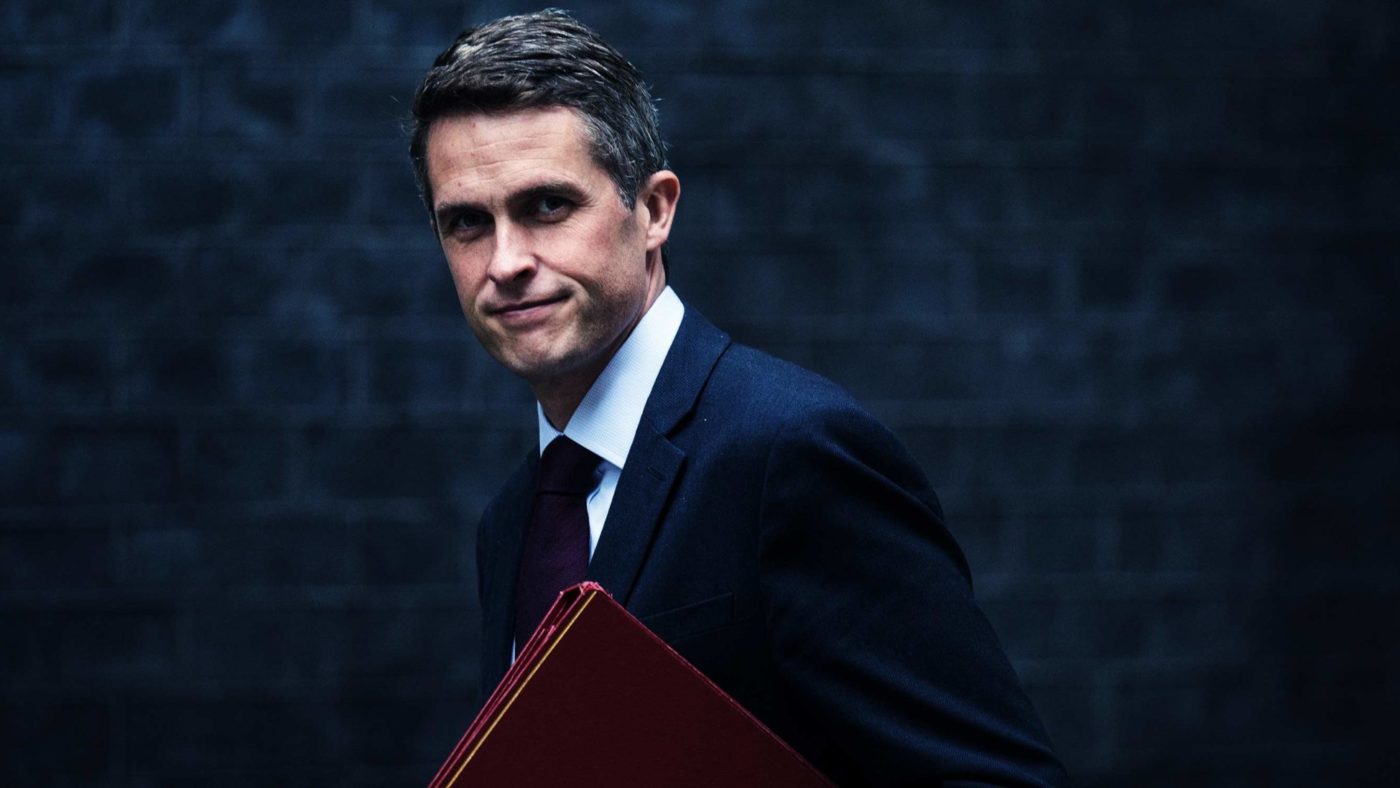Gavin Williamson is an ambitious man. He is, after all, a politician. People in that line of work are hardly immune from ambition’s siren call.
Political careers are often embarked upon with the highest of hopes, sometimes accompanied by the most outlandish of expectations. Even the most parochial of political figures cherish some secret ambition.
The case of the Secretary of State for Defence is different. It is different not because his ambitions are greater, necessarily, than those of other politicians, but because they are so overt, pursued so unsubtly – and, seemingly, without the intervention of those things which, in the normal run of things, limit the rise of men of his competence.
The Defence Secretary’s manoeuvres are so blatant that it is difficult to avoid the appearance of comedy. This weekend brought a perfect example. The Mail on Sunday ran a piece nominally reporting on his demands for an extra £20bn of defence spending, the same amount Theresa May last week promised to the NHS.
That increase in health spending was justified by the promise of what the Government called a “Brexit dividend”, a concept which attracted healthy scorn. Williamson’s demand for a similar sum to his department was justified by Gavin Williamson himself. The Mail on Sunday piece quoted Williamson as saying, of the prime minister, that he “made her” and could, therefore, “break her”. It was so transparent a piece of politicking that it made the the “Brexit dividend” debate seem sincere and focused by comparison. Not only is this overblown phrasing intrinsically comic; its comedy is enhanced by how seriously one can imagine the defence secretary plotting the story, and how seriously he seems to be taking his route to Downing Street.
Williamson had at one point been thought of as a close ally of May’s. His claim to having “made her” rests on having run her successful 2016 campaign for the Tory leadership. Before then, May had been an MP for 15 years, and a minister for six. She won the Tory leadership at least in part because her opponents took turns immolating themselves while she remained standing, a little apart. None of that can reasonably be considered to have resulted from the strategic genius of her campaign manager.
After May’s installation in Downing Street, Williamson acquired an office of his own. It is from his time as chief whip, where he kept his pet tarantula on his desk, that stories of his cunning first originate. The spider, Cronus, attracted the following telling comment from a Tory MP: “When a man keeps a pet tarantula, it’s because he doesn’t have a better story to tell.”
Very soon, the main story about Williamson became his own quixotic quest for the top. This impression was cemented when, instead of advising the prime minister on who should replace Sir Michael Fallon after his resignation as defence secretary, Williamson advanced his own candidacy.
All this is seems like good fun. It’s certainly funny. Obvious ambition often is. But Williamson’s rise to real office has a deleterious effect on other, more important things. We expect more than ambition from our ministers; we demand skill and judgement. Especially when it comes to a job as important as defence secretary. In Williamson, the latter qualities are less in evidence.
His handling of Russia has been profoundly embarrassing. In March, the poisoning of Sergei and Yulia Skripal in Salisbury, likely by Russia, united much of the world behind Britain. Dozens of nations condemned Russian activities; many expelled Russian diplomats. Political leaders from around the world offered measured, solemn words on the dangers of attempting to use chemical weapons to murder civilians in a foreign country.
Later, at a Policy Exchange event, the defence secretary prepared to deliver his own message of quiet, sober condemnation. He stared into the television cameras. Gravely, he lowered his voice. “Frankly, Russia should go away and should shut up”, he intoned.
Lapses like that, and like that contained in the Mail on Sunday, might be excusable if they happened less frequently, or to someone so inelegantly scaling the greasy pole. They may yet prove to be a disqualifying factor for someone who wants to run the country.
Williamson is now well known to be an ambitious man. He and his allies must realise that this is a grievous fault, not an asset.


